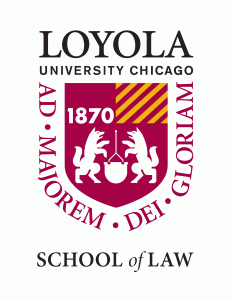As beacons of advocacy for underrepresented children, Loyola University Chicago School of Law’s Civitas ChildLaw Clinic and Education Law and Policy Institute have provided legal services for cases ranging from child welfare to special education. However, faculty and staff realized that there was a frequently overlooked student experience in need of increased legal assistance: bullying.
An anonymous donor with a passion for bullying prevention and intervention made sure that Loyola could do more. The donor funded a fellowship that allowed the launch of an Anti-Bullying Program. In July 2020, Loyola welcomed attorney Julie Pautsch as the program’s first director.
To learn more about the Anti-Bullying Program, we interviewed Julie about the inspiration behind and goals of the program.
Q: Why is Loyola working on issues of bullying?
JP: This is an area that was unaddressed and sometimes this is a central issue why the child is not going to school or being disciplined for defending themselves.
Q: What drew you to this work?
JP: I have a degree in secondary education, but I felt helpless to impact change in the classroom. So, I went to law school to help change outcomes for children. I had worked with bullying cases before and remembered how difficult it was. The victim gets blamed a lot. Even an imperfect victim still deserves a safe school. I was interested in the challenge of helping victims.
Q: What is your background?
JP: I worked in landlord-tenant and housing law and before that–education law. I worked for a couple different legal aids, where I gained a lot of litigation experience. I’ve always felt there was something important about advocating for children.
Q: What kinds of cases do you handle?
JP: Right now, a lot of cases involve righting past wrongs, incidents that happened before COVID. But the online bullying cases might be coming in the spring. Virtual learning has been a pretty big learning curve for schools.
Q: What struggles are you seeing in schools?
JP: It’s disheartening to see some of the same things that I’ve seen for years. Blaming victims. I’m surprised–maybe I forgot the lengths people will go to cover up past deeds. In this new environment, kids may get lost. There are a lot of things happening that parents and teachers don’t know about.
Q: What schools are you working with?
JP: We’re interested in Chicago Public Schools, of course, and we are also looking at non-public schools. Those are more challenging. If a private school child is being bullied, they may be pressured to leave. Work on school closings shows that switching schools is damaging in itself. So this is a harmful situation, with fewer remedies available.
Q: What are your goals for the Anti-Bullying Program?
JP: We’re hoping to get to students earlier, to create intake processes where people can contact us sooner. We want cases before they reach a point of crisis. It can get really contentious at that point. If we can prevent things from escalating, assist parents to quickly put schools on notice, that’s a better situation.

